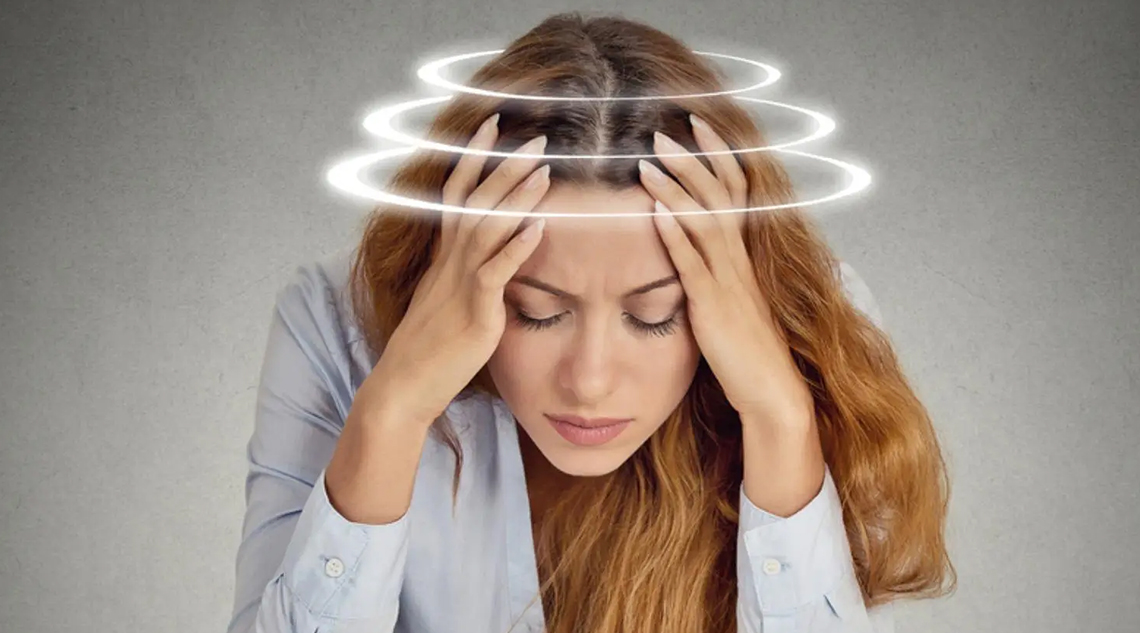Vertigo is a condition where a person has the sensation of moving or of surrounding objects moving when they are not. Often it feels like a spinning or swaying movement. This may be associated with nausea, vomiting, sweating, or difficulties walking. It is typically worse when the head is moved. Vertigo is classified into either peripheral or central depending on the location of the dysfunction of the vestibular pathway.
Vertigo that is caused by problems with the inner ear or vestibular system, which is composed of the semi-circular canals, the vestibule (utricle and saccule), and the vestibular nerve is called "peripheral", "otologic" or "vestibular" vertigo. The most common cause is benign paroxysmal positional vertigo (BPPV), which accounts for 32% of all peripheral vertigo. Other causes include Meniere’s disease (12%), superior canal dehiscence syndrome, labyrinthitis, and visual vertigo.

People with peripheral vertigo typically present with mild to moderate imbalance, nausea, vomiting, hearing loss, tinnitus, fullness, and pain in the ear. In addition, lesions of the internal auditory canal may be associated with facial weakness on the same side.
Vertigo that arises from injury to the balance centres of the central nervous system (CNS), often from a lesion in the brainstem or cerebellum, is called "central" vertigo and is generally associated with less prominent movement illusion and nausea than vertigo of peripheral origin. Central vertigo may have accompanying neurologic deficits (such as slurred speech and double vision), and pathologic nystagmus (which is pure vertical/torsional).Central pathology can cause disequilibrium which is the sensation of being off balance. The balance disorder associated with central lesions causing vertigo is often so severe that many people are unable to stand or walk.
A number of conditions that involve the central nervous system may lead to vertigo including: lesions caused by infarctions or haemorrhage, tumors present in the cerebellopontine angle such as a vestibular schwannoma or cerebellar tumors, epilepsy, cervical spine disorders such as cervical spondylosis, degenerative ataxia disorders, migraine headaches, lateral medullary syndrome, Chiari malformation, multiple sclerosis, parkinsonism, as well as cerebral dysfunction. Central vertigo may not improve or may do so more slowly than vertigo caused by disturbance to peripheral structures. Alcohol can result in positional alcohol nystagmus.

